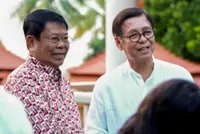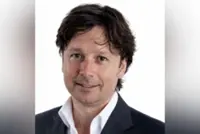BANGKOK: The political landscape remains unstable as various factors converge to challenge the Pheu Thai Party-led government under Prime Minister Paetongtarn Shinawatra.
The administration is navigating a perilous path fraught with internal and external conflicts, particularly in the realm of "lawfare"—the strategic use of legal systems to achieve political objectives.
A notable development occurred when the Supreme Court's Criminal Division for Political Office Holders rejected a petition from former Democrat Party MP Chanchai Issarasenaruk. He had requested an inquiry into the Department of Corrections' decision to allow former Prime Minister Thaksin Shinawatra, Paetongtarn's father, to receive medical treatment at the Police General Hospital despite being sentenced to eight years in prison.
The court dismissed the petition, stating that Chanchai was neither a party to the case nor directly affected by the enforcement of the sentence.
However, the court exercised its own investigative powers, directing Thaksin, the Bangkok Remand Prison Director, the Department of Corrections Director-General, and the Police General Hospital's chief physician to provide evidence within 30 days.
A hearing is scheduled for June 13, 2025.
This incident has become a significant political issue, with various groups, including the People's Democratic Reform Committee (PDRC), led by Phichit Chaimongkol, mobilising to pressure relevant authorities for action.
The National Anti-Corruption Commission (NACC) is also investigating the matter. NACC Secretary-General Saroj Puengramphan reported in March that the case is under examination, with some evidence already collected.
Additionally, an ethics investigation is underway concerning the medical professionals who treated Thaksin. The Medical Council is expected to conclude its findings by May 8, 2025.
The government's challenges extend beyond legal battles. Allegations of improper share transfers involving Paetongtarn have surfaced, with accusations of "sham transactions" through promissory notes amounting to 4.43 billion baht.
The opposition has seized upon this issue, and the House Economic Development Committee, led by Dr Chai Sitthipol of the People's Party, is scrutinising the matter.
The Pheu Thai Party has defended the transactions, citing assurances from Pinsai Suraswadi, Director-General of the Revenue Department, that they do not constitute tax evasion.
Furthermore, the government faces scrutiny over its policy speech, which allegedly lacked transparency regarding the sources of funding. This has led to calls for the Cabinet's dissolution under Article 162 of the Constitution. While the Election Commission has referred the matter to the Constitutional Court, the outcome remains uncertain.
These multifaceted legal and political challenges underscore the precarious position of the Pheu Thai-led government. As it contends with internal power dynamics and external pressures, the administration's ability to navigate these turbulent waters will be critical to its survival. - The Nation/ANN





